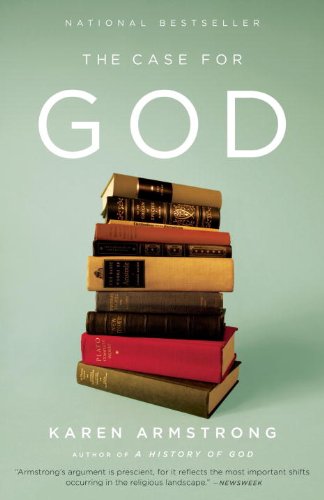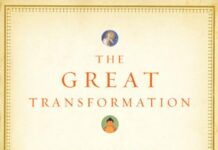
Ebook Info
- Published: 2009
- Number of pages: 434 pages
- Format: EPUB
- File Size: 2.14 MB
- Authors: Karen Armstrong
Description
NATIONAL BESTSELLER • A nuanced exploration of the role of religion in our lives, drawing on insights of the past to build a faith for our dangerously polarized age—from the New York Times bestselling author of The History of GodMoving from the Paleolithic age to the present, Karen Armstrong details the great lengths to which humankind has gone in order to experience a sacred reality that it called by many names, such as God, Brahman, Nirvana, Allah, or Dao. Focusing especially on Christianity but including Judaism, Islam, Buddhism, Hinduism, and Chinese spiritualities, Armstrong examines the diminished impulse toward religion in our own time, when a significant number of people either want nothing to do with God or question the efficacy of faith. Why has God become unbelievable? Why is it that atheists and theists alike now think and speak about God in a way that veers so profoundly from the thinking of our ancestors?Answering these questions with the same depth of knowledge and profound insight that have marked all her acclaimed books, Armstrong makes clear how the changing face of the world has necessarily changed the importance of religion at both the societal and the individual level. Yet she cautions us that religion was never supposed to provide answers that lie within the competence of human reason; that, she says, is the role of logos. The task of religion is “to help us live creatively, peacefully, and even joyously with realities for which there are no easy explanations.” She emphasizes, too, that religion will not work automatically. It is, she says, a practical discipline: its insights are derived not from abstract speculation but from “dedicated intellectual endeavor” and a “compassionate lifestyle that enables us to break out of the prism of selfhood.”
User’s Reviews
Reviews from Amazon users which were colected at the time this book was published on the website:
⭐I bring a bias to this review. I am a Christian. I believe Jesus Christ is my Lord and savior. Jesus is both God and God’s son and God created the universe.Armstrong sets up her case right in the beginning. There are two ways to look at the world, called “logos” and “mythos.” Logos is reason and logic. Mythos, or myths, “were really focused on the more elusive, puzzling, and tragic aspects of the human predicament that lay outside the remit of logos.” I don’t know what this means, but then I am not a philosopher. This is probably another bias I bring to this review.I wish Armstrong would honestly reveal her bias. After reading through a summary of the history of the entire world, her argument boils down to this: God did not create us, we created God. She never says this overtly – but if I’m reading what she’s trying to tell me, that’s what mythos is all about – people trying to explain what they see in the world around them using made-up stories. Armstrong claims that in the old days, our ancestors knew the difference between myths and reason. It’s only recently that we try to apply logic and reason to everything, even stuff our ancestors made up for which logic and reason were never meant to apply.So that’s her argument. 330 pages boiled down to one paragraph.Except Armstrong is wrong. I just said I’m a Christian and now I’m going to quote the Bible. Predictable, right? Isn’t that what we Christians always do? We quote the Bible to try to prove the Bible is true and then Atheists hammer us for circular reasoning. Well put the hammers away for now. We all agree the text we accept today as the New Testament portion of the Bible was written in the first century AD. Like it or not, it’s a historical document. We can find out a lot about how people in that day went about their business and viewed the world. So if, as Armstrong claims, we only recently tried to force-fit myth into a system of modern reasoning and the Scriptures were never meant to be taken literally, why did Paul say this in 2 Timothy, verses 16 and 17, nearly 2000 years ago?All Scripture is God-breathed and is useful for teaching, rebuking, correcting and training in righteousness, 17 so that the servant of God[a] may be thoroughly equipped for every good work.Now I’m no Greek scholar, but today’s English Bible is the work product from some of the best scholars on the planet. So we can be confident that least one opinion leader from roughly 2000 years ago was of the opinion that Scripture was more than a myth somebody made up to help his friends feel better.Armstrong is not completely in the weeds. As much as I don’t like it, her description of how today’s Old Testament came to be meshes with what the smartest people I can find say. The Old Testament we see today is the product of hundreds, maybe a couple thousand years of editing. One example – Moses could not possibly have written all the first 5 books of the Old Testament because the text in the last chapter of Deuteronomy describes how Moses died. The bottom line from lots of scholarship – apparently we don’t know who wrote these books and much of the Old Testament.So what do we do with that? Since we don’t know who wrote these original Scriptures, how can we trust what they say? Here’s the part Armstrong glosses over. We trust the Old Testament because we have rock-solid evidence supporting the authenticity of the New Testament. The people in the New Testament trusted the Scriptures of their day – what we call the Old Testament today. Because they trusted their Scriptures, we trust their Scriptures because we have ample evidence to trust them. It’s called a transitive trust. Greg trusts Paul, Paul trusts David, so Greg also trusts David. Granted, it’s not as good as directly testable evidence, but it’s much better than what Armstrong claims.Armstrong finally reveals her bias against Christians starting with this paragraph near the bottom of page 293.”Christian fundamentalists take a hard line on what they regard as moral and social decency. They campaign against the teaching of evolution in public schools, are fiercely patriotic but averse to democracy, see feminism as one of the great evils of the day, and conduct a crusade against abortion. Some extremists have even murdered doctors and nurses who work in abortion clinics. Like evolution, abortion has become symbolic of the murderous evil of modernity. Christian fundamentalists are convinced that their doctrinal “beliefs” are an accurate, final expression of sacred truth and that every word of the Bible is literally true–an attitude that is a radical departure from mainstream Christian tradition. They believe that miracles are an essential hallmark of true faith and that God will give the believer anything he asks for in prayer.”Where do I even start with this diatribe? Maybe with the last sentence. Contrary to Armstrong’s stereotype, Christianity does not teach that God will give us anything we ask for in prayer, nor does the Bible offer any evidence to support such nonsense. Although it’s true that a few highly paid prosperity preachers lift Bible verses out of context to teach this stuff, they are wrong. In fact, all but one of Jesus’s original disciples were executed and Jesus Himself endured unspeakable pain. Why would modern Christians expect anything different?It is also true that many Christians are prolife. Although we believe human life starts at conception, it is absolutely false that Christianity condones murdering doctors and nurses who work in abortion clinics. For Armstrong to suggest such a thing is offensive and sensationalist. Every group has a lunatic fringe, even Atheists, and Armstrong does herself no favors by trying to package all Christians into this fringe.Since we believe that life starts with conception, does it not make sense that we would campaign hard to change the law of the land to get rid of abortion? For those who argue that abortion represents a woman’s right to choose, consider that roughly 50 percent of all unborn babies are future women. What rights are granted to these unborn babies with no voice? We believe those unborn babies who have no voice should be granted the right to live. This is not subjugating women, it is compassion for those who need it most.And as for seeing feminism as one of the great evils of the day – where do Armstrong and others come up with this stuff? Although there is no denying that men, including Christian men, have treated women badly over the generations, the real truth is, treating women like second-class citizens goes against Christian teaching. If you want equitable treatment under the law, look no further than our own sacred book in Ephesians, Chapter 5, verses 21 through 28, where Paul instructed Christians of his day in a radical new way of thinking.21 Submit to one another out of reverence for Christ.22 Wives, submit yourselves to your own husbands as you do to the Lord. 23 For the husband is the head of the wife as Christ is the head of the church, his body, of which he is the Savior. 24 Now as the church submits to Christ, so also wives should submit to their husbands in everything.25 Husbands, love your wives, just as Christ loved the church and gave himself up for her 26 to make her holy, cleansing[b] her by the washing with water through the word, 27 and to present her to himself as a radiant church, without stain or wrinkle or any other blemish, but holy and blameless. 28 In this same way, husbands ought to love their wives as their own bodies. He who loves his wife loves himself.How anyone can pervert that text to make a claim that Christianity somehow advocates subjugating women is a mystery to me. Far from anti-feminist, Christians should be and often are leaders in the campaign for equal rights for women.Let’s be clear here. Men and women are different. This doesn’t mean one is better than the other, just that we’re different. Want evidence? Does anyone reading this remember seeing a pregnant man walk down the street? Women carry babies. Men don’t. We’re different. Duh! Get used to it. To try to build a case that women and men are equal is ludicrous. Armstrong should build the case for equitable treatment and equal rights, not for the fiction of absolute equality. This is a mistake many feminists make and it only harms the cause.In Armstrong’s defense, she is an equal opportunity critic and she destroys modern atheism starting around page 303 or so. It’s amazing the mental gymnastics today’s Atheists use to try to deny faith and here is one paragraph on page 305 where she demonstrates that Atheists do indeed have a faith:”As its critics have already pointed out, there is an inherent contradiction in the new atheism, especially in its emphasis on the importance of “evidence” and the claim that science always proves its theories empirically. As Popper, Kuhn, and Polyani have argued, science itself has to rely on an act of faith. Even Monod acknowledged this. Dawkins’s hero Darwin admitted that he could not prove the evolutionary hypothesis but he had confidence in it nonetheless, and for decades, as we have seen, physicists were happy to have faith in Einstein’s theory of relativity, even though it had not been definitively verified. Even Harris makes a large act of faith in the ability of his own intelligence to arrive at objective truth–a claim that Hume or Kant would have found questionable.”So I’ll give the book 3 stars. Even though her fundamental point – that we created God instead of God creating us – is wrong, she still taught me some things and I owe her credit for that. But, revealing my bias again, I hope I don’t have to read any more philosophy books.
⭐There’s an awful lot of talk about God these days; and, frankly, most of it is facile. The internet in particular seems to be constantly abuzz with heated “debate” (if you can even call it that, since it tends more toward an exchange of insults than an exchange of ideas) between “ignorant” believers and “arrogant” nonbelievers who actually think that they are making devastatingly clever, irrefutable arguments when, in fact, most of what they say is so naïve, ill-informed, and poorly reasoned that even a first-year theology or philosophy student couldn’t listen to it without facepalming. Sure, if you look hard enough you can find more sophisticated discussions of “the God question”, even on the internet; but these can be somewhat difficult for the layperson with little or no background in the philosophy of religion to follow; and thus they tend to attract less attention than do the more puerile debates on popular online discussion forums, and similarly puerile popular books written by well-known partisans in the culture wars. So, in the face of all the nonsense that gets said on a daily basis nowadays by both sides in the God debate, it’s refreshing to read this delightful book by noted religious historian (and ex-nun) Karen Armstrong, who devotes 330 pages to patiently, meticulously, and respectfully explaining exactly where both sides in this debate have gone astray, and how believers and nonbelievers alike would benefit from a little more sophistication in how they think about God, and a little more humility in how they approach the subject.Armstrong traces the history of religious thought from ancient times to the present day, to show how our understanding of God — along with related concepts such as religion, faith, belief, myth, scripture, doctrine, etc. — has changed over the centuries. In particular, she demonstrates how our modern conception of God is radically different from the way our pre-modern ancestors would have thought about God. The idea of God that many people have today seems overly simplistic when compared with the more sophisticated idea of God that many religious thinkers held in centuries past. In fact, the modern “God” is so simplistic, so limited, so anthropomorphic that it could be seen as idolatrous — a false god that man has created in his own image. Armstrong argues that the current debate between believers and nonbelievers is really a fight over this false, modern “God”, and has nothing to do with the God that the greatest religious minds of antiquity wrote about. I won’t try to summarize the differences between the pre-modern idea of God and the modern idea of God, because it gets a bit complicated, and Armstrong explains it much better than I ever could. But, suffice it to say, the arguments you hear so often today about God apply only to the modern “God”, and simply cannot be made to apply to the pre-modern God. You’ll have to read the book to understand why. If we were to take Armstrong’s advice and give up the modern view of God — and, along with it, the modern understanding of what faith, religion, and scripture are all about — in favor of an older, more sophisticated approach to these things, the debates between defensive believers and offended nonbelievers would essentially become irrelevant, and we could move forward with a more respectful, more compassionate, and more edifying dialogue between people of all faiths and of no faith.I sincerely wish that everyone — especially those who take “the God question” seriously enough to get involved in debates over the issue — would take the time to carefully read this book, and give serious consideration to the merits of Armstrong’s argument. Sadly, I fear that the people who are most in need of this book are those who are (a) least likely to actually read it, (b) least likely to understand Armstrong’s argument even if they did read it, and (c) most likely to reject Armstrong’s insights out of hand simply because they don’t fit neatly into their own preconceived worldviews. I am referring, of course, to the most vocal participants in the God debate, namely religious fundamentalists on the one hand, and irreligious fundamentalists (i.e. the so-called “new atheists”) on the other. I refer to the new atheists as “irreligious fundamentalists” because (a) the “new atheism” is clearly a reaction against religious fundamentalism, and (b) new atheists actually have a lot more in common with religious fundamentalists than they would care to admit. Both share the same, overly simplistic, modern conception of God, along with similarly simplistic views about what it means to have religious faith. Both insist upon a literalistic interpretation of scripture, refusing to acknowledge that there can be any truth at all in “myth”. Both also share the same craving for certainty, and are unwilling to admit that there are some things that are simply beyond human understanding. Therefore, both are obsessed with “proof”, each trying to establish irrefutable evidence in support of its own views about God. And, most damningly, both are guilty of hubris, and the intolerance that springs from it. Each views the other with utter contempt, blaming each other for everything that’s wrong with the world today. Religious fundamentalism and the new atheism are not so different after all. They are, in fact, the twin offspring of the modern conception of God; and theirs is a true sibling rivalry, which probably goes a long way toward explaining why it is so bitter. So, I will continue to refer to the new atheists as “irreligious fundamentalists”, preserving the same family name as their less skeptical, but no less misguided, brethren.Both types of fundamentalists, religious and irreligious, would benefit from Armstrong’s insights about God. Both are in desperate need of a more sophisticated understanding of God. Both seem to cling to the image of God they learned as small children — an image which somehow never matured as they grew up. But if they were willing to give Karen Armstrong a chance, considering her arguments with an open mind, she could teach them a better way to think about God, which would give them a new perspective on what faith is really all about, and what religion can be at its best rather than at its worst. If one were willing, even if only for a moment, just as an experiment, to try to see things the way that Karen Armstrong sees them, one would find that both types of fundamentalism look quite absurd, because both depend on childish notions about God. If everyone who participates in the God debate were to read this book and take it to heart, the debate would still go on; but I am convinced that it would be a much more civil and more productive debate. And that would truly be a blessing from God (or possibly from Darwin — take your pick; I’m OK with both).
⭐There are many good insights in this work and I am glad to have read it. It is really heavy going though, and unnecessarily full of references, which make it more like an annotated thesis. I think it stands up well as a documented history of religion and theology, but should now be rewritten in a simpler form.However, that would be exactly what the author resists. Her main point is that we expect religion and faith to be easy and straightforward and clear. But it is not. We have become lazy and want a neatly defined God served up to us. We should return to the earlier concepts of simply accepting that our language and understanding cannot describe God. We should engage in religious rituals and the “hard work” and through those we arrive at our own concept of God. Ritual is valid and helpful.There are fascinating facts in the book and I highlighted many sections. I learned in this book that Copernicus was NOT the first to propose the Sun at the centre of the solar system, that was proposed in third century BC by Aristarchus.The description of logos (logic) and mythos (mythology), why they should coexist was truly enlightening. For the first time in my life I understood the purpose of mythology – to show us how to deal with the things that logic or reason cannot explain (death, grief, heroism, tragedy). They describe good and bad reactions and behaviour specifically to inform us, because logic cannot do this. Good old Greeks – they knew a thing or two.God and science being accepted at the same time, is interestingly described as a cyclical process throughout history, with theologians and scientists originally being quite happy to describe a complementary coexistence. Also the conflicts between Bible literalists and non literalists is well described. And why fundamentalism came about.I was SO glad when I got to 80% on the Kindle and found the last 20% was references which I did not have to read because it was just a bit too long and detailed. It is a massive piece of work. The word “apophatic” is clearly the authors favourite word, a bit overused (31 times) and not always logically, but seemed to be thrown in as an extra adjective. The book could have said as much, with the same authority, by using less obscure language. But so easy to criticise – so hard to produce such a good piece of work as this truly is.Did it change my outlook? For me, the book affirmed that science, logic and reason continue to advance, but they do this in a human dimension. There is a dimension beyond them which, in history, was always accepted, as being beyond science. And history can teach us a thing or two.
⭐This book looked at the case for god from a perspective that I found very intriguing. I approached the book as an agnostic yet the book (without preaching) makes a far more convincing case than I was anticipating. Worth a look for the open minded.
⭐In 1984 Karen Armstrong announced she had finished with God. She has spent the last twenty five years redefining the God with whom had finished. Inspired by the works of Wilfred Cantwell Smith, Armstrong has sought to project religion as variable expressions of historical cultures all of which were based on the Golden Rule to treat others as you would wish to be treated yourself. Armstrong has no religion only a commitment to explaining what she thinks religion should be in a world in which dogmatic expressions of fundamentalist doctrines threaten peaceful coexistence between nations. In many respects she is reminiscent of Del Boy Trotter, spinning generalities containing an element of truth, but repeatedly proclaiming her opinion as objective fact. In doing so she believes she understands historical religions in terms which the religious themselves understood rather than modern concepts which changed our perceptions of what they thought. The result is a woolliness worthy of a merino sheep and with as much insight.The Case For God is characteristic of Armstrong’s approach. She argues that ancient explanations of reality were understood by those who created them to be mythological. Myths were translated into facts by later commentators. She then applies this to all foundational religions, particularly monotheism. She argues that rituals express the practice that is the essence of any religious belief and that the failure of ritualism to appreciate the inability of humans to fully express the essential nature of God has led to the retention of the notion of personality in the divine. For Armstrong personally this failure led to the rejection of the images she received as a child and rejection of God’s existence.In the first part of the book Armstrong tries to show how people thought about God and throw some light on those issues which our contemporaries find problematic, “scripture, inspiration, creation, miracles, revelation, faith, belief and mystery” while demonstrating how organised religion goes wrong by substituting dogma for practice. Hence the second century Church fathers introduced the concept of creation ex nihilo (out of nothing) which she suggests was “entirely unknown in antiquity” and represented a departure from original Christian teaching. She argues that the Nicene Council’s definition of the Trinity was seen in the West as a rational belief, whereas in the Eastern church it was seen as a myth, a truth not accessible to reason but “a meditative device”. Hence the importance of monasticism in facilitating the silent contemplation required to experience the meaning of God.In the second part of the book Armstrong discusses the modern concept of God from 1500 onwards. This is a historical survey of religion and its relationship to science, enlightenment and the challenges of materialism and skepticism. In broad terms this is well put together and covers the main intellectual developments in a clear and concise manner. She argues that, “quarrelling about religion is counter productive and not conducive to enlightenment”. The first part states the obvious but the second part is problematic and depends on the definition of enlightenment. This is where Armstrong is at her weakest. Does enlightenment mean knowledge or understanding? The tenor of her argument is that she is enlightened so it means accepting her opinion as being correct. Thus while she argues against the intemperate bigotry of Dawkins, Hitchens and Harris for their identification of religion as a unified denial of reason, she suggests that conceptual unity across religious traditions is the only fruitful way to conduct dialogue.Armstrong seeks to show scientific modernity has challenged the traditional belief that a transcendent God could only be known by “dedicated practice” of religion. Her aims are laudable but her explanation is a combination of New Thought theology and the Christian existentialism of Paul Tillich. The modern world is not witnessing the death of God but a restatement of theology for the times. Whether that theology is a rewriting of traditional forms of belief or the application of traditional forms to a changing society, is at the heart of the conflict between fundamentalist and mainstream theology and the relationship of both to the secular world. In my view Armstrong pays insufficient attention to the mechanism of religion as a method of social control.In rating the book I had to decide whether I thought it a useful addition to the subject. On that basis it would be churlish to rate it negatively. Certainly the second part of the book is a quick reference on a number of relevant topics. Ultimately, Armstrong doesn’t really make a case for God, she simply looks at the cases into which God has been placed by the limitations of human reason. My perspective on religion has been influenced by the dissenting tradition and Armstrong’s leaning towards mysticism makes me wonder whether she really understands what religion actually means. The philosopher Bryan Magee claimed that people believe what they want to believe. I would take it a stage further and suggest that people believe what they choose to believe. Certainly this is what Karen Armstrong has done. Four stars.
⭐I have read a number of Karen Armstrong’s books but this was by far the best. Having read through it once I am now re-reading it and the various “clippings” I have made of many small passages are testimony to how informative, inspiring and helpful I find the text to be.The book argues that the religion that is spoken against, condemned – and even ridiculed – by various authors such as Richard Dawkins and Christopher Hitchens is often that of a very literalist approach to “Holy” texts – an approach that itself is a modernism and not grounded in authentic spirituality. Karen Armstrong is a very good guide to what can only be seen as a deeper and more profound approach to Reality, an approach that she argues has in fact been at the heart of the major Faiths.A very fine book and well worth reading – even re-reading! Thank you Karen.
⭐Coming from a self-critical Christian background Karen Armstrong presents a history of human spirituality and religion, from ancient times to 9/11. She does focus on the monotheistic religions, and does not in the end, make a case for God. But the journey was fascinating and I could not put the book down.Among other things I find that every ‘original thought’ I have tried to express has already been expressed more effectively hundreds or even thousands of years ago!The best book I have read in years!
Keywords
Free Download The Case for God in EPUB format
The Case for God EPUB Free Download
Download The Case for God 2009 EPUB Free
The Case for God 2009 EPUB Free Download
Download The Case for God EPUB
Free Download Ebook The Case for God



